Mujeres en Movimiento
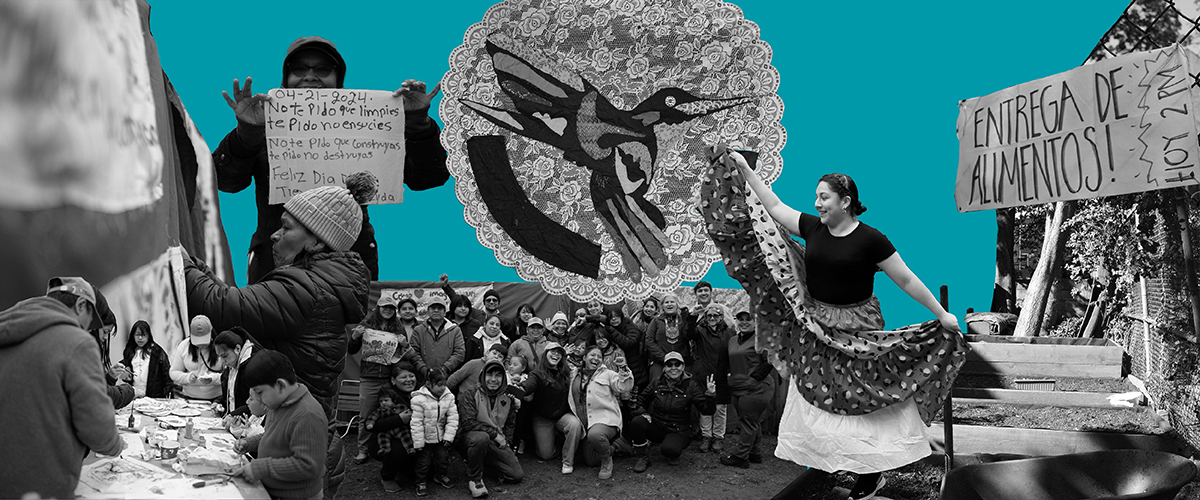
About
The Mujeres En Movimiento Oral History Project is an ongoing endeavor that collects and centers the efforts of collective care done primarily by women in working-class and immigrant communities, mobilized through mutual aid and solidarity efforts that put community advocacy and wellbeing at the forefront. These stories reveal a collective history of cooperation and resistance, where mutual aid is not only present but fundamental to the survival and formation of resilient communities, ones that are consistently led and sustained by women.
The grassroots group Mujeres en Movimiento took root in Corona, Queens in 2012, inspired by a shared commitment to health and healing through physical activity. What began with _bailoterapia, _healing dance sessions, sparked by a single woman, quickly grew into a daily gathering of around 50 immigrant women who have since built a strong sisterhood. Together, they’ve transformed exercise into a tool for healing, empowerment, and joy.
The group’s vision expanded when they connected with WeBike, discovering in biking a new form of freedom and empowerment. This led them to advocate for safer streets in their community, including the installation of a bike lane on 111th Street. Despite facing opposition and racial discrimination, Mujeres en Movimiento persisted, asserting their right to safety, joy, and mobility—not just as cyclists, but as mothers and pedestrians in public space.
One of their latest initiatives is the creation of a community garden—an effort aimed at addressing food insecurity among local families while also offering a peaceful space for connection and reflection.Over the years, they’ve seen how solidarity, movement, and shared purpose have helped them lead fuller, healthier lives—not just for themselves, but for their families and broader community. Beyond physical activity, the group now serves as a second family, especially during challenging times.
Oral Histories
Values, Purpose, and Methods
In New York City, like in many other cities, Latina immigrant women uphold a rich set of values deeply shaped by their cultural heritage, lived experiences, and collective resilience. Central among these is familismo, a strong dedication to family that guides decisions and emphasizes caregiving, intergenerational support, and collective well-being. In the face of systemic barriers and limited access to resources, many engage in networks of solidarity and mutual aid, drawing on informal economies and community organizing to support one another through shared challenges. Respeto, mutual respect, is also foundational, especially in maintaining dignity, harmony, and social relationships within families and communities. Spirituality—whether through ancestral practices or religion—also serve as powerful sources of strength, healing, and hope. Another remarkable value they demonstrate is resilience and perseverance with determination and resourcefulness.
Cultural preservation is also deeply valued, as women play a central role in maintaining and transmitting language, traditions, food, and storytelling to younger generations. All these values not only sustain Latina immigrant women in their everyday lives but also contribute to the vitality and cultural richness of New York City. At the heart of the Mujeres en Movimiento Oral History Project is preserving, through oral history, those values.
This project honors and preserves the knowledge and lived experiences of the immigrant, Spanish-speaking, working-class women who make the area vibrant and resilient. These women—often homemakers or working mothers, single, widowed, or divorced—are frequently overlooked, yet they are actively fighting for their right to exist and shape the city. The project seeks to foster community learning by drawing from their strategies, methods, and motivations of the past to inform future imaginaries and inspire collective action, opening pathways to concrete and just possibilities.
Team and Collaborators
This ongoing oral history project is a collective endeavor led by Mae Francke in collaboration with an advisory team from the organization Mujeres en Movimiento, whose members include Verónica Ramírez, Glendi López, Roselvia Vargas, Monica Bunay, Aracely Vargas, Albina Mateo, Marisela Hernandez, and Elizabeth Tolaba.
The transcription, editing, analysis, and indexing of the interviews have been carried out by Mae Francke, an alumna from the MS Design and Urban Ecologies at The New School, with the assistance of Silvia Castro Cuellar, a student from the MS Strategic Design and Management program. The interview material will be progressively released alongside a collection of photographs of the narrators, as well as educational material developed collaboratively and an archive of photographs from community meetings, actions, and other activities. The photographs shared in this site are attributed to Gracia Goh, Mae Francke, and Sol Aramendi.
Overarching Themes
- Representation
- Community Control
- Collective Power
- Community Space
- Immigrant-led Activism
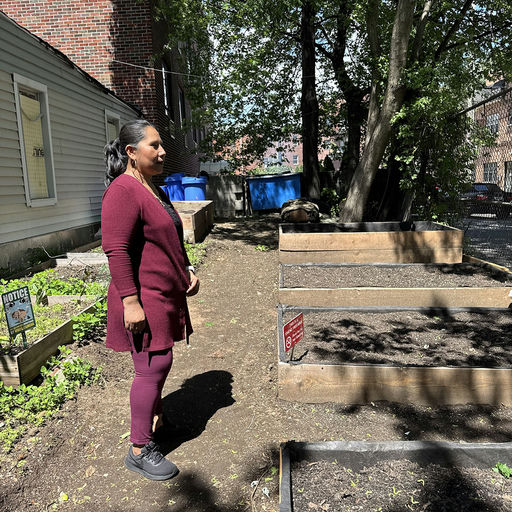 Araceli Vargas
Araceli Vargas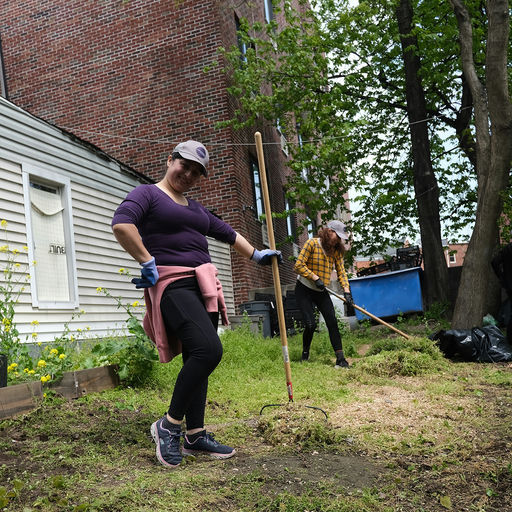 Glendi López
Glendi López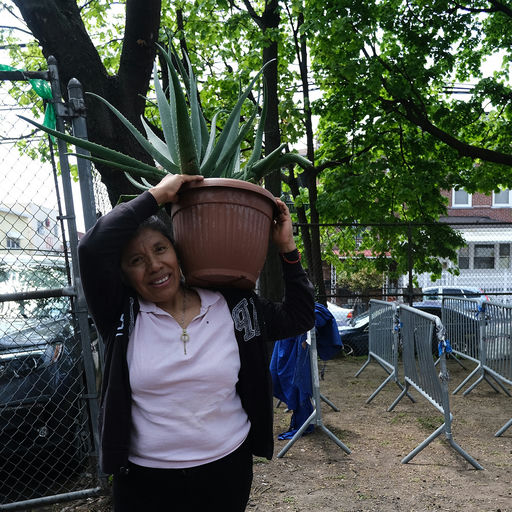 Maricela Hernández
Maricela Hernández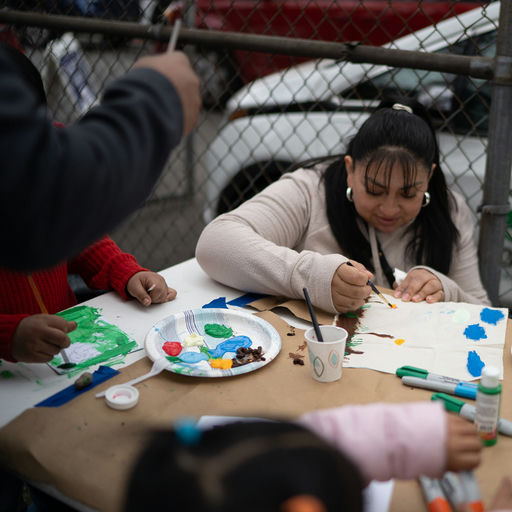 Mónica Bunay
Mónica Bunay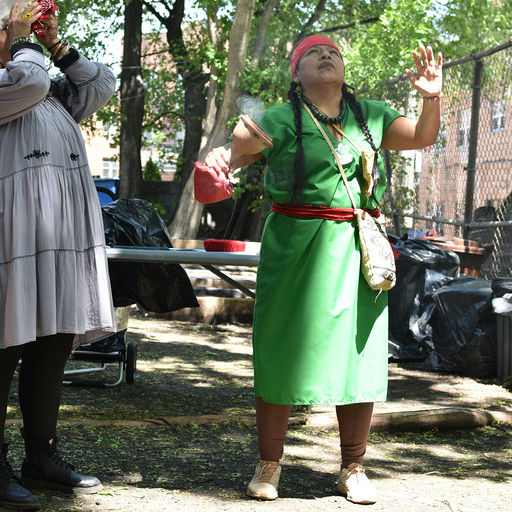 Veronica Ramírez
Veronica Ramírez